Strategic Plan 2030

ELM will set Massachusetts on course to achieve a net-zero economy by 2050 through policy advocacy and strategic partnerships.

Hear from Leadership
This is the foundation from which we fight to ensure Massachusetts leads the nation in building a prosperous clean energy future. 2030 will be here before we know it, so let’s get to work. So much is within our reach, and it will require all of us to work together.
Elizabeth Turnbull Henry President, Environmental League of Massachusetts
ELM combines strong leadership, policy expertise, a deep understanding of Beacon Hill, and partnerships with the public and private sectors to help drive sustainable change.
I know that, with our generous supporters, we will achieve our ambitious goals. The actions we take in the next few years will make a profound impact on future generations.
Gordon Burnes Board Chair, Environmental League of Massachusetts
THIS IS  ELM
ELM

The Environmental League of Massachusetts advocates for policy that meets the scale and urgency of our environmental challenges.
Our Work
ELM’s policy advocacy will set Massachusetts on a course to be a net-zero economy by 2050. Our policy priorities endeavor to build a Commonwealth that is decarbonized and equitable, where our residents, economy, and natural world all thrive.
Our Priorities
Our Approach
Our Drivers of Success
Our Vision for 2030
The Environmental League of Massachusetts is committed to creating an inclusive and prosperous clean energy future in which our communities and our natural world thrive.
We envision a future in which Massachusetts is powered by clean energy. Networked offshore wind farms and responsibly sited solar arrays connect to robust and efficient regional transmission and energy storage systems that deliver affordable electricity where and when it is needed. The clean energy economy creates tens of thousands of high-quality jobs and economic opportunities across the Commonwealth, particularly for women and minority-owned businesses and historically under-resourced communities.
Powered by affordable and abundant clean energy, homes and businesses are heated and cooled without fossil fuels. The transition to decarbonized buildings is enabled by readily available financing and incentives, and driven by a large, diverse workforce earning family-sustaining wages.

Gone are the days of slow, unreliable and polluting public transportation. Electrified, accessible and reliable trains and buses are the preferred modes for travel. For those who need to drive, electric vehicles are the first choice thanks to their affordability and a robust EV charging infrastructure powered by clean energy. Electrified transportation is complemented by abundant and safe options for biking and walking. Our air is cleaner, roadways less crowded, and communities healthier – with the Massachusetts transportation system widely recognized as a model for the nation.
Decarbonization has been fueled by the Commonwealth’s unprecedented investment – leveraging historic federal funding and attracting private capital. Just as we became a global leader in health care, education and life sciences, Massachusetts is among the best places in the world to start, staff, and grow ideas, companies and technologies that address environmental challenges. Workforce development programs effectively connect employers with diverse talent state-wide. Clean technologies are regulated, permitted, and deployed at the speed the climate crisis requires. As a result, the Massachusetts model for a thriving, inclusive green economy is being replicated around the world.

As we built our green economy, we also enhanced the quality, abundance, and resiliency of our natural resources. More land is protected for the benefit of people and nature. We have dramatically reduced pollution from solid waste and toxic chemicals. Our air and water are cleaner, and communities are healthier and more resilient to the impacts of climate change. Public parks and open space are a valued part of Massachusetts life, and our tourism, agriculture, outdoor recreation, fishing, and clean energy industries are thriving.
Thanks to the reduction in greenhouse gas emissions and other environmental pollutants, the health of Massachusetts residents has improved, especially in communities that previously suffered the worst impacts from air and water pollution. Environmental justice is advancing along with improved economic opportunities for those who were historically left out of economic growth.
Collaborative partnerships span across industries, facilitating conscious and effective solution-building and advocacy. Businesses, nonprofits, policymakers, labor associations, and philanthropists work together in support of climate progress.

Please join us in helping to achieve this vision for people and nature in Massachusetts – and for generations to come. We succeed with the support and partnership of those who share a similar vision, with businesses, nonprofits, policymakers, labor, and philanthropists working together. We have already made significant progress. Together, tremendous opportunities are within our reach.
Our Priorities
Clean Energy
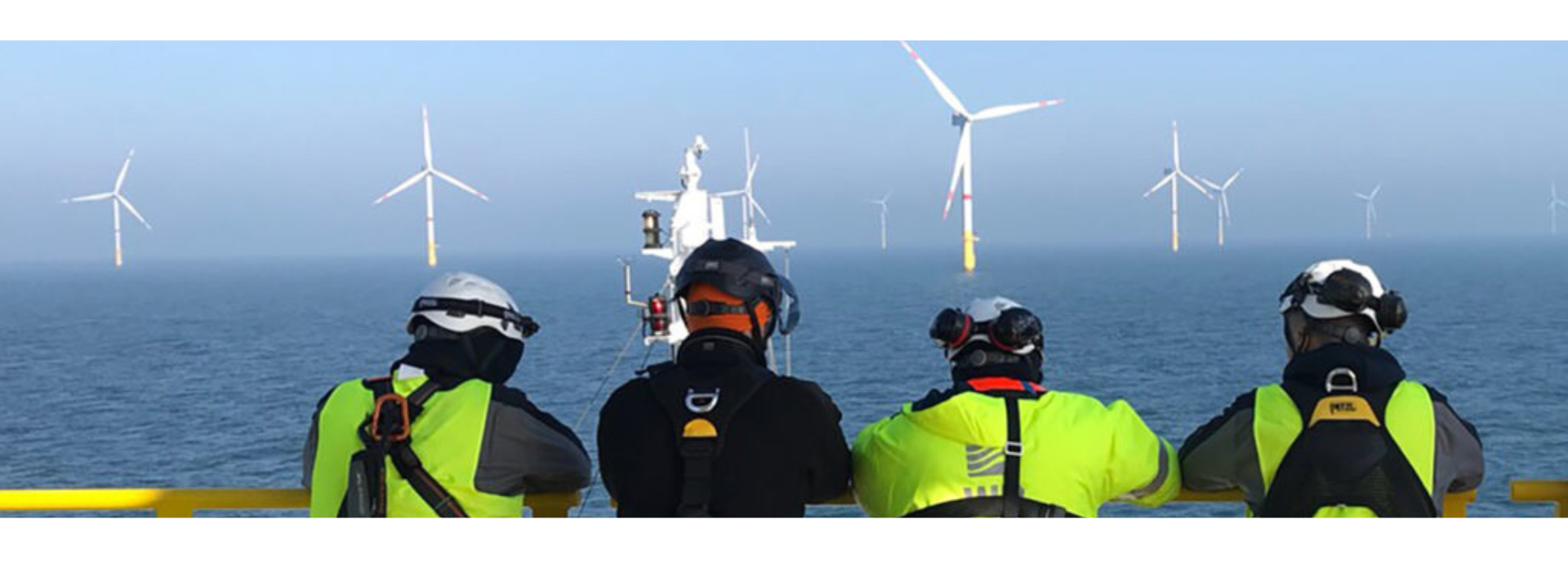
A net-zero future depends on a rapid transition away from fossil fuel energy, with an upgraded transmission system that delivers clean electricity where and when it is needed. Currently, Massachusetts is not on track to reach the goals stated in the Commonwealth’s 2030 Clean Energy and Climate Plan. These include deploying 24 gigawatts of renewable energy; building an 85% clean electricity grid; reducing energy sector emissions by 80%; and constructing and permitting sufficient regional transmission. ELM is committed to helping Massachusetts exceed the 2030 goals and be on pace for net-zero by 2050, while driving equitable economic growth and advancing environmental justice.
To achieve these 2030 goals, ELM will:
- Drive rapid and responsible development of offshore wind through regional collaboration, communications campaigns, and driving action among key partners through the New England for Offshore Wind coalition;
- Reform solar, storage, and transmission siting and permitting through an incentives program that integrates energy storage, accelerates interconnection, and incentivizes development on built and disturbed land;
- Build strong community support in towns that will host key infrastructure for offshore wind, transmission, and distributed renewable resources; and
- Drive regional collaboration and cost allocation to develop regional transmission solutions.

Green Buildings
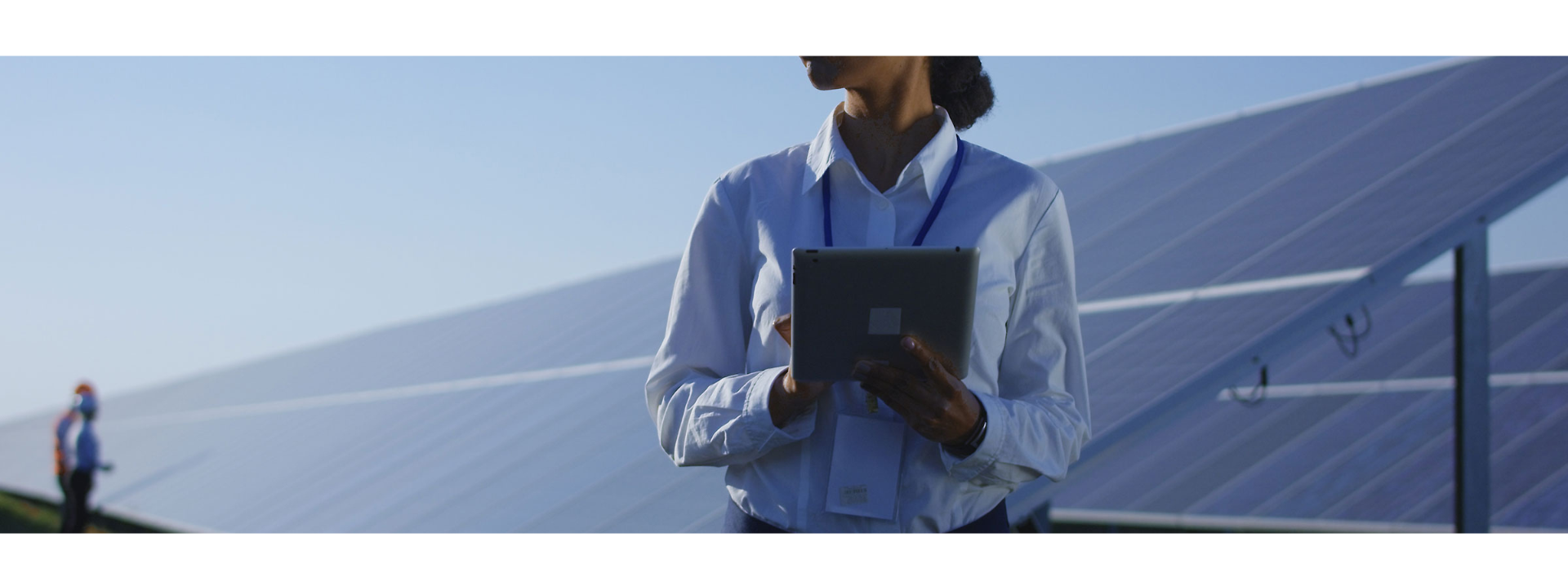
Roughly 30% of Massachusetts’ emissions come from the built environment and buildings are the largest emitter of greenhouse gases in Boston. The necessary scale of deep retrofits and new construction is staggering – by 2050, more than two million buildings across our state must be made energy efficient and electrified. Many of these also face significant climate resilience needs. The Commonwealth’s 2030 goals include electrifying 38% of buildings; installing one million heat pumps; retrofitting 25% of homes; and reducing 50% overall emissions. Achieving these goals grows our workforce, reduces emissions, lowers building operating costs, creates jobs, and improves public health.
ELM will:
- Decarbonize buildings by creating new funding streams, reforming state programs to increase access for underserved communities, and driving policies to achieve a coordinated, smooth transition from natural gas;
- Improve standards in existing buildings, prioritizing rental properties and public housing;
- Support net-zero construction by advocating for widespread adoption of building codes that incentivize fossil fuel free new construction;
- Advance funding and innovation by advocating for easily accessible and equitable financing to decarbonize buildings and improve efficiency; and
- Expand the green workforce by advocating for increased support for key education and workforce training programs and streamlining state certification processes.

Electrified and Reliable Transportation

ransportation generates approximately 37% of emissions in Massachusetts – the largest source in the state. Decades of underfunding has left the MBTA unreliable and underutilized. The Commonwealth’s 2030 goals include: registering 900,000 zero-emissions vehicles; installing 75,000 charging stations; increasing annual MBTA ridership to 400,000; electrifying 50% of buses; electrifying the commuter rail in environmental justice communities; and reducing overall emissions by 34%. By achieving these goals, we can reduce emissions, make communities healthier, and drive our state’s competitiveness.
ELM will:
- Lead advocacy for public and private financing for decarbonized public transit, electric vehicles, and EV charging infrastructure, prioritizing environmental justice communities;
- Advocate for grid, road, and transit modernization necessary to enable electrification of trains and vehicles;
- Partner with business leaders to demand reliable, decarbonized transportation; and
- Empower municipalities to decarbonize their fleets and improve planning to encourage transit use, walking, and cycling.

Equitable Green Economy

Massachusetts has the potential to be among the world’s leaders in clean technology start-ups and private investment in environmental and climate innovation. ELM is committed to helping Massachusetts become one of the best places to start, staff, and grow ideas, companies and technologies that address environmental challenges. We advocate for robust and effective programs to support entrepreneurs, attract and retain companies, develop a strong and diverse workforce, pilot innovations, and ensure that women, minority, veteran, disabled, and LGBTQ+-owned companies have equal access to contracts.
ELM will:
- Significantly increase funding for the Massachusetts Clean Energy Center
- Secure passage of a multi-billion-dollar state bond to drive investment in renewable energy and decarbonize buildings and transportation;
- Advocate for policies that develop a strong green workforce and partner with businesses and business associations to elevate workforce development priorities with lawmakers;
- Promote equal access to jobs and contracts through economic inclusion policies in clean energy laws and procurements; and
- Incentivize private sector investment in climate, water, and waste solutions by advocating for streamlined siting and permitting for new technologies addressing environmental challenges.

Protecting Natural Resources

Massachusetts has ambitious 2030 goals to protect natural resources, including protecting 30% of undeveloped land; planting 20,000 new urban and riparian trees; and reducing solid waste by 30%. Over recent years, however, our state agencies have suffered from significant underfunding. Today, the Commonwealth is spending less per capita on parks and recreation than any other state. ELM is committed to helping Massachusetts meet or exceed these 2030 goals.
ELM will:
- Lead the Green Budget coalition to increase and sustain public funding for environmental agencies, with a goal of at least 1.5% of the state’s operating budget dedicated to Energy and Environmental Affairs programs;
- Reduce waste by advancing legislation that places the cost burden on packaging producers;
- Increase climate preparedness and resiliency by incorporating preparations in all state-wide plans, procurements, and regulations;
- Improve air and water quality by ensuring that air quality permitting takes disproportionate impacts on environmental justice communities into account, and environmental protection programs increase resiliency of water resources; and
- Protect land for people and nature by advocating for increased conservation funding in state capital plans and prioritizing building renewable energy infrastructure on disturbed land.

Enviromental Justice and Public Health
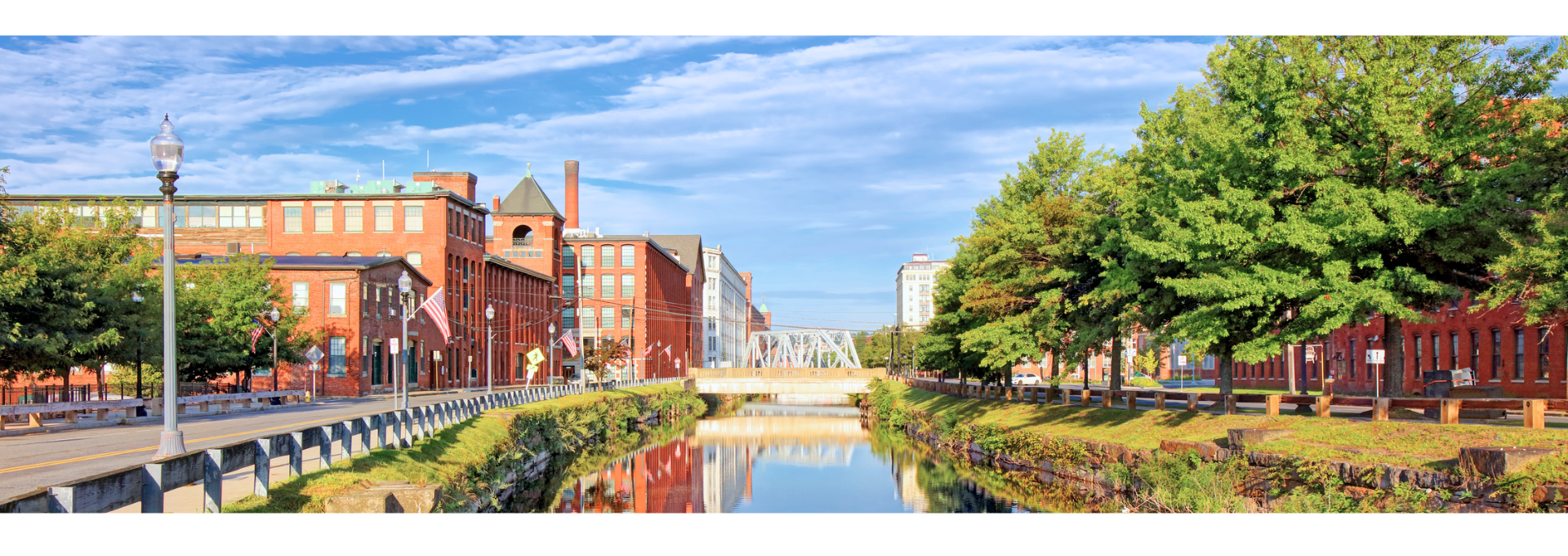
Currently, environmental degradation and the climate crisis have an outsized impact on people of color and marginalized communities. ELM is committed to ensuring that the transition to clean energy is prioritized in communities with poor environmental quality and that have been overburdened by energy infrastructure. We will work toward permitting and siting processes that are inclusive; economic benefits that are shared equitably; and decarbonization in environmental justice communities that drives improvements in public health.
ELM will:
- Implement policies that drive equitable access to decarbonization, such as electrified housing, zero emissions vehicle, and reliable public transit;
- Secure siting and permitting reforms that accelerate clean energy development while improving health and economic opportunity in environmental justice communities;
- Pass legislation banning products using PFAS (per- and polyfluoroalkyl substances);
- Advocate for financing to electrify Commuter Rail lines, starting with those serving and traveling through environmental justice communities; and
- Ensure that air quality impacts within environmental justice communities are monitored and considered alongside cumulative impacts during permitting processes.

Our Approach
ELM helps set the direction and content of climate policy discourse in Massachusetts. We ensure that our policy advocacy and partnerships are mutually reinforcing, elevating our impact on our Commonwealth and beyond.
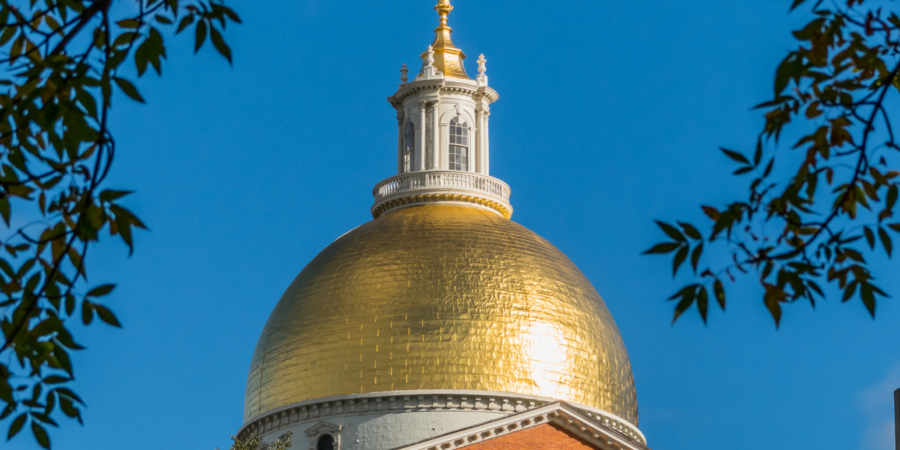
Advocacy: Educating & Mobilizing Beacon Hill
ELM has the policy expertise and State House insider understanding to propel our vision forward. Over years of collaboration, ELM has earned a reputation as a trusted and inclusive convener. ELM has built trusted relationships with policymakers who are well-equipped and committed to promoting strategic environmental policy solutions.
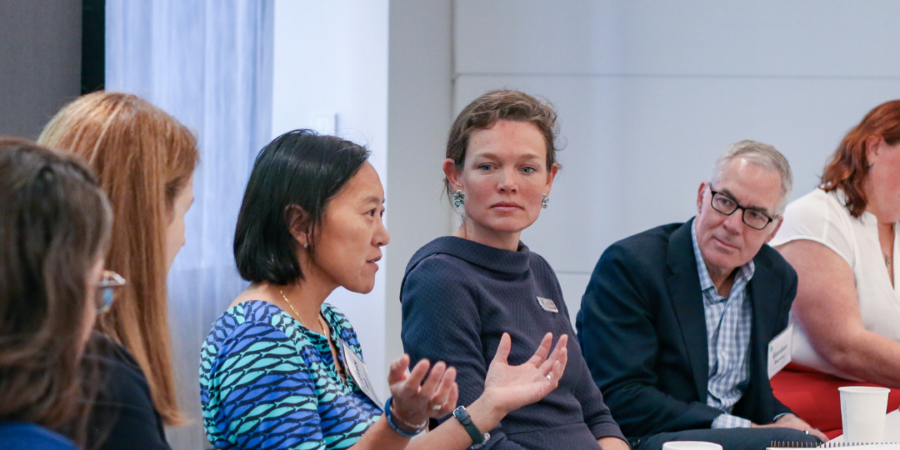
Strategic Partnerships: Building Broad Coalition Support for Pressing Environmental Issues
ELM’s strength comes in part from equipping leaders across sectors to act with us. By building effective coalitions like New England for Offshore Wind and the Green Budget coalition, we unite diverse voices and effectively drive a shared agenda. We use our influence to elevate marginalized stakeholders and prioritize environmental justice. Through our Corporate Council and our deep working alliances with business associations, we prepare private sector leaders to champion ambitious environmental policy. Our advocacy and lobbying leadership builds cohesion across stakeholders and shapes how influential institutions integrate environmental issues into their policy agendas.
Key Drivers of Success
ELM’s strategy for 2030 relies on world-class talent, building our brand, and growing our base of financial support.

Leadership
Board of Directors
- Gordon Burnes, Board Chair
- Bethany Patten, Treasurer & Clerk
- Hank Bell
- Mark Bilbe
- JocCole “JC” Burton
- Dr. Lindsey Butler
- William “Buzz” Constable
- Ben Downing
- Robert Fishman
- Isabel Grantham Rappoport
- Elizabeth Turnbull Henry
- Seth Jaffe
- Namrita Kapur
- Ginger Lawrence
- Dhiraj Malkani
- Bradley McLean
- Nikko Mendoza
- Sandhya Murali
- Pete Pedersen
- Gwen Ruta
- Tedd Saunders
- Chrisann Taras
Advisory Council
- Dr. Gaurab Basu
- Tom Burton
- Geoffrey Chasin
- William “Buzz” G. Constable
- Rodney Dowell
- Kevin Dutt
- Sam Fleming
- Dave Forbes
- Dr. Aisha Francis
- Bracken Hendricks
- Anne Kelly
- Janet Kraus
- Tedd Ladd
- Dr. Bill Lundberg
- Mahmood Malihi
- Nicole Obi
- Matt Patsky
- Emily Reichert
- Bob Taylor
- Katie Theoharides
- Rob Tuchmann
- Ann Wallace











